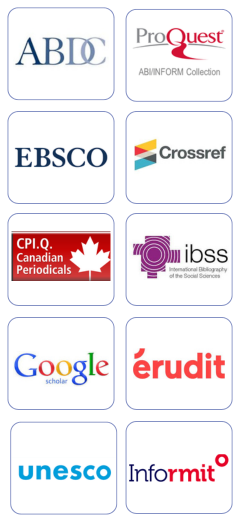Auditor-Client Dependence in the Development of New Accounting Standards in Canada
Abstract
This study examines constituent participation in the accounting standards setting process in Canada to determine whether the positions of auditors and their clients relative to new accounting standards proposals are independent of each other. Using responses to the ten accounting exposure drafts receiving the highest public responses, the active role of Big Eight (now Big Five) firms is underscored. For all responses, significant agreement between Big Eight/Five auditors and their clients in their respective positions on proposed new accounting standards is found. However, domination of the process by Big Eight/Five firms through indirect influence of their clients' responses to individual exposure drafts is not supported. Disagreements among Big Eight /Five firms and between Big Eight/Five firms and their clients are found. Overall test results indicate that relative to the core issues on which new accounting standards are needed, auditors and their clients generally respond independently, even if there were some new proposals on which they had the same views. The findings suggest that independent corporate and audit-firm motivations explain the decision to participate in the accounting standards setting process. The real motivations for the active participation in the process by auditors and corporations are subjects for continued research.Published
2002-01-01
How to Cite
Abekah, J. (2002). Auditor-Client Dependence in the Development of New Accounting Standards in Canada. Journal of Comparative International Management, 5(1). Retrieved from https://journals.lib.unb.ca/index.php/JCIM/article/view/437
Issue
Section
RESEARCH ARTICLES
License
Papers accepted become the copyright of the journal, unless otherwise specifically agreed.



